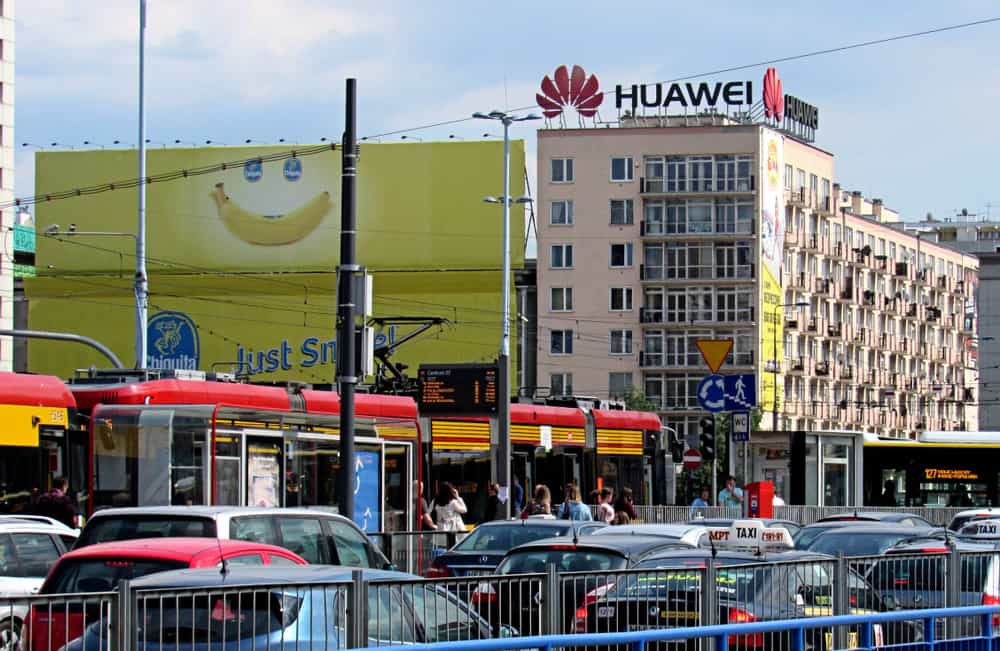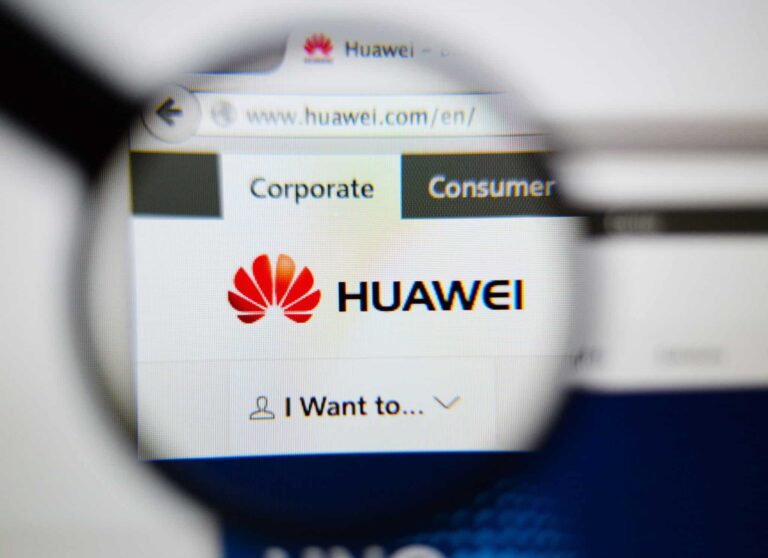Early in the morning on January 8th, agents of the Polish Internal Security Agency entered the homes of Piotr D. and Wejing W. The former, who used to work in special services, was a manager at Orange, a telecommunications company. The latter was the head of sales at Poland’s Huawei’s office. They were charged with acts of espionage for China and jailed for three months. They are currently facing ten years in prison.
The decision to detain them was unprecedented. Never before had a Chinese citizen been detained in Poland on espionage charges. The services had paid little attention to the activities of Chinese operatives in Poland. The only high-profile case involved Mateusz Piskorski, a former politician accused of spying for Russia and China in 2016.
According to our sources, it was US secret services that sounded the alarm about the activities of Piotr D. and Weijing W.
Staszek from China
After moving to Poland from China, Weijing W. started working for Huawei Polska as a public relations specialist. He was then appointed to the head of a department responsible for public sector contracts. His Chinese surname (Polish law does not allow for it to be revealed) translates to “King” and is as popular in China as the surname Kowalski is in Poland. He changed his first name to a Polish one — Staszek — when he was studying Polish at the elite University of Foreign Languages in Beijing.
Weijing W., a lecturer at the University of Silesia, attended conventions, symposia and congresses. He befriended many people and remained very active in the business and public space. In addition to meetings and conferences, he devoted a lot of time to his core duties: securing large orders from state-controlled companies. He held talks with, among others, the Polish State Railways, which was planning to launch a telecommunication network at several hundred railway stations across the country with security cameras, information kiosks and burglar alarms.
Huawei was interested in this contract and later became a strategic partner of a thematic railway conference.
The new infrastructure was to be based on 5G, the fifth-generation mobile network that isset to be implemented in at least one big city in Poland in 2020, per European Commission requirements. “Our mission is to enable communication for every person, every household and every organisation. In this way, we want to create a connected, intelligent world,” Weijing W. said.
After the arrest of Staszek, Huawei officially fired him and maintained that his detention had nothing to do with the company. But Polish public administration offices were asked to draw up an inventory of Huawei equipment.
A few weeks after the outbreak of the scandal, the head of Huawei Polish division Tonny Bao was still trying to make the best of a bad job. With Weijing arrested on charges of espionage, the elaborate plan to open a planned Research and Development Center in Warsaw had to be shelved. Bao told the journalists that the Warsaw innovation centre would still be opened, and would create up to 500 jobs. But since the scandal broke out, Huawei representatives have not mentioned the investment.
According to unofficial sources, the R&D centre is already operational but has been downscaled. Instead of a few hundred, it employs only several dozen people. A similar fate befell the Huawei Technical Centre, which had been planned for Katowice.
Exit the dragon
At Huawei’s Polish office, the atmosphere seems tense. For days now Tonny Bao, the head of Huawei’s Polish division, has spent hour after hour talking to the company’s bosses in Shenzhen. His superiors are pressuring him to clarify whether the company will be able to stay in Poland. They want to know if Huawei is still being considered for the opportunity to implement 5G in a Central European country with a population of 38 million. Several companies are currently fighting to become the industry leader for a technology set to turn the current telecommunications market upside down.
Six months ago, Bao began sending requests to meet with members of the Polish government, but authorities have not yet responded.
During the phone calls, his Chinese superiors ask about the reasons for such an impasse. They are gradually losing patience. The directors in Warsaw are also on edge – they tiptoe around Tonny Bao, continually asking one another about his mood. Has he smiled? Is he talking to staff?
According to VSquare’s unofficial sources, if Huawei’s situation in Poland fails to clear up in the coming months, the Chinese might move their regional headquarters for Central and Eastern Europe and the Nordic countries to another large country in the region. At the Polish Huawei office, rumours are circulating that Viktor Orbán might welcome the Chinese group since Hungary is already home to Huawei’s key supply centre outside China, and the company itself is the second largest Chinese investor in that country.Last April, the Hungarian finance minister Mihály Varga visited Beijing and met with Huawei’s regional head James Li. “The Chinese company Huawei is an important strategic partner of the [Hungarian] government,” Varga said after the meeting.
Huawei strongly rejects any suggestions that it plans to withdraw from Poland. The Chinese have stressed on numerous occasions that they are ready to talk to the Polish authorities and have even promised new investments. They have already spent 5 billion zlotys (US$1.3 billion) in Poland and would like to invest an additional 2 billion over the next three years.

Warsaw. Huawei has been running intensive marketing campaigns in Poland. Photo: Shutterstock
They have also warned that if they are excluded from the construction of 5G in Poland, local telecommunications services may become three times more expensive. If Poland bans Huawei devices from the telecommunications sector, it would have to find 8.5 billion euros to purchase new antennas, relays, control panels, among other things, which might negatively affect the phone bills.
These arguments have not affected the Polish government. The war of nerves between Poland and China continues.
Hungary is a new player
Despite security alerts issued by the Czech Republic and the arrests in Poland, Hungary remains unfazed.
In Hungary, Huawei has been awarded multiple public procurement contracts, although in most cases in a subcontractor role.
In 2013, company’s technology was used to establish a unified emergency call system (number 112) in Hungary, which is linked to the internal, closed radio system of emergency services (ambulance, firefighters, disaster management, police, etc.).
In 2015, a Hungarian state-owned IT company, together with Huawei, won a tender for the deployment of an LTE450 mobile network, which functions as a special mobile network for state users.
Mariann Gecse, communications director for Huawei Technologies Hungary, has said that the company is not among the ten most significant IT and telecommunications subcontractors of the Hungarian state, and that their LTE450 mobile network is mostly used to connect smart devices, not for making phone calls or using mobile internet. She also stressed that Huawei only supplied the hardware for these projects, and that they have nothing to do with the data that flows through the networks.

Budapest. Photo:Shutterstock
But the issue is not only that Huawei is the Chinese emissary to Hungary. Hungary has also been vetoing most joint EU statements relating to China.
In July 2016, the EU tried to put out a joint statement welcoming a Hague international court ruling over the South China Sea debate that favored the position of the Philippines over China. The statement, however, was blocked by Greece, Croatia and Hungary.
In March 2017, Hungary prevented the EU from signing a petition protesting that lawyers being detained in China were tortured.
In April 2018, the EU External Action Service attempted to issue a joint statement asking China to adhere to human rights and international law. The draft statement also required member states to leave out propagandistic expressions pressed by China from any kind of future bilateral agreements with the Communist country. Hungary first threatened with a veto, then refused to sign the document.
In October 2018, when Visegrad Group prime ministers met with the Japanese premier, no public statement was issued because of Viktor Orban’s objection to references of maritime security and the South China Sea conflict.
Great Leap Forward
“The Hungarian government does not see any security risk in Huawei,” said Gergely Gulyás, Minister of the Hungarian Prime Ministers office, on his regular, weekly “Kormányinfó” (Government Information) press conference on 24 January 2019. Gulyás also told the journalists that the the prime minister’s office is not aware of any proposal that would exclude the Chinese company from domestic 5G developments.
Ferenc Frész, the former head of Cyber Defence at the Hungarian National Security Authority, backed up the official statement when asked to comment.
“The national security issue is not that we use breakthrough Chinese technology. The risk we run is that we do not have an established national research and development, and manufacturing potential. Looking further, there is not even an established European manufacturer, so all EU members are exposed to the same security risks. The only realistic question is whether European states should rely upon American, Chinese, or South Korean commercial service providers when developing their core communication networks,” he told Átlátszo.
This text was financially supported by GACC (The Global Anti-Corruption Consortium) aimed at the Visegrad countries. Member centers Direkt36 and Átlátszo from Hungary, Ján Kuciak Investigative Center from Slovakia, Fundacja Reporterów from Poland and investigace.cz from the Czech Republic are working on the project.







